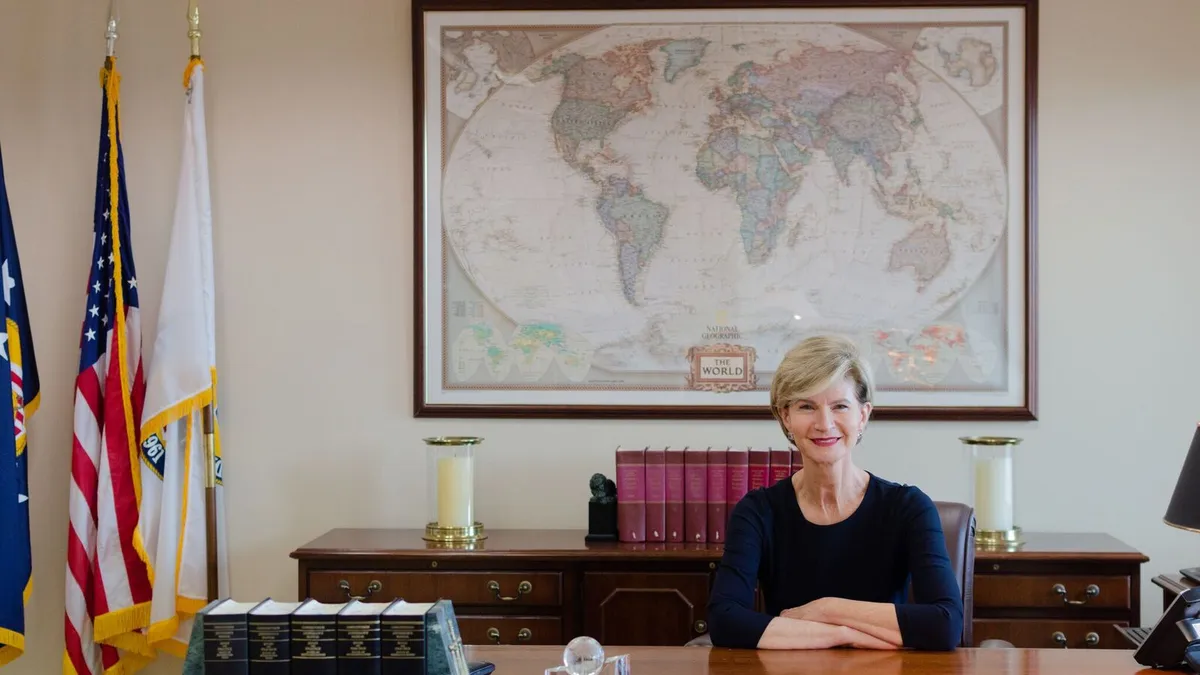Dive Brief:
- The Federal Maritime Commission (FMC) this week announced it would create a Shipper Advisory Board, which would regularly offer "information and insights" on "emerging maritime issues" to the regulator.
- The decision was made as part of a vote to approve the recommendations made in the final report of Fact Finding Investigation No. 28, an investigation into detention and demurrage fees.
- The "complexity of port operations and the wide variation in port procedures and practices supported the conclusion" to create such a board for the Commission, according to the report. The report notes other advisory boards — of "other stakeholders" and those involved in freight delivery — would also benefit.
Dive Insight:
In creating the Shipper Advisory Board, the FMC is standardizing an approach it has used to regulate in the past two years — using small teams of stakeholders to develop recommendations for the private sector to implement.
The process was first tested in the regulator's Supply Chain Innovation project, when the Commission brought together six groups of industry stakeholders to form Innovation Teams.
As part of that project, the teams eventually came to the conclusion a national portal for supply chain visibility would be of great benefit to the industry — but it needed be tested before implementation. GE and the Port of Los Angeles took on the task and eventually developed the GE Port Optimizer pilot project.
In the latest investigation on detention and demurrage fees, the FMC will enlist "Innovation Teams" to find ways to implement the four recommendations outlined in the report.
In a press release announcing the decision, Commissioner Rebecca Dye explained the approach is necessary for a system as complex as the international freight delivery system.
"The handoff of a container from carrier to trucker to destination is not a linear process. In reality, everything is happening at once and that is why it is so daunting a task to get a handle on these issues," Dye said. "The teams process is ideally suited to creating the engagement necessary between subject matter experts to allow for private sector driven process improvements."
Earlier this year, in a conversation with Supply Chain Dive, Commissioner Dye explained she believed the small-teams approach will become a key tool for the Commission.
"As we have developed them, the teams are for commercial solutions," Dye said at the time. "I believe that's the future and I think that is ... that's an interesting role for the government to play."














